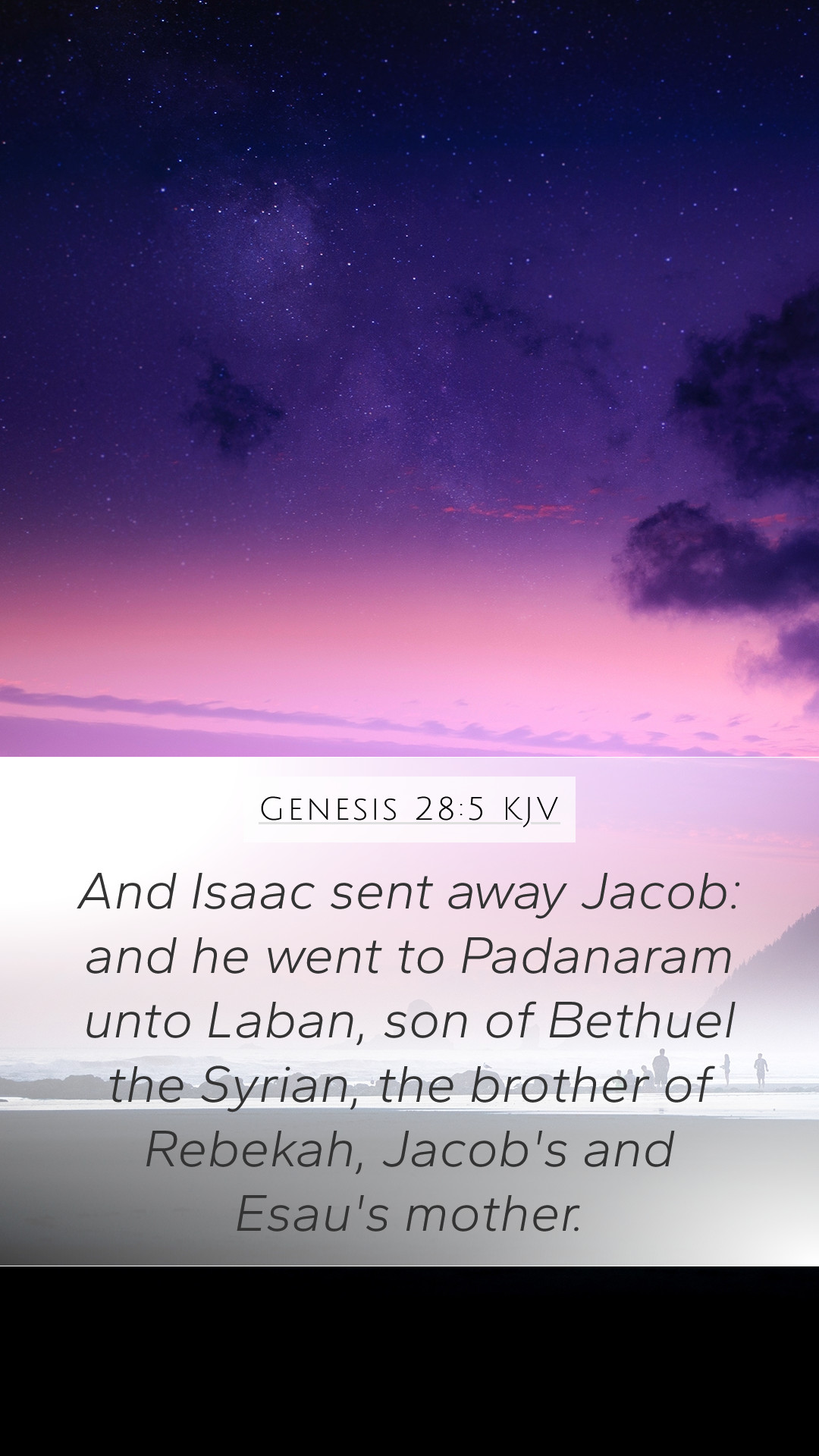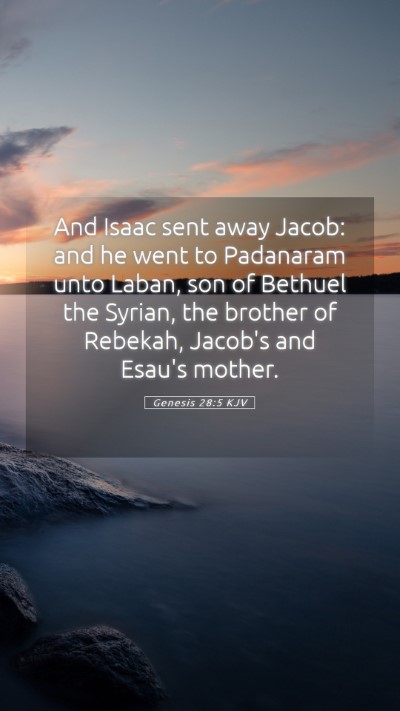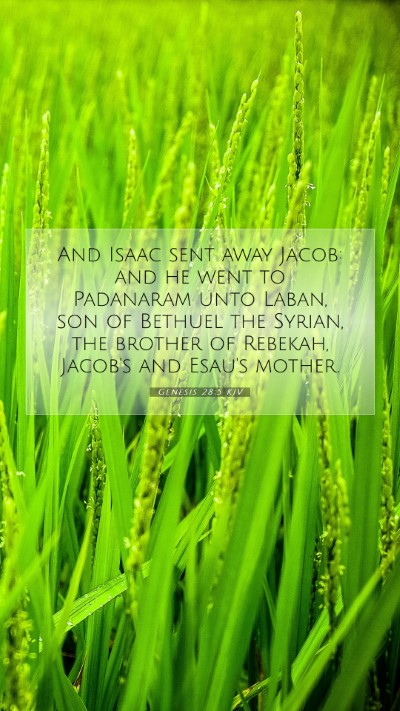Understanding Genesis 28:5
Genesis 28:5 states:
"And Isaac sent away Jacob: and he went to Padanaram, unto Laban, son of Bethuel the Syrian, the brother of Rebekah, Jacob’s and Esau’s mother."
Bible Verse Meaning
This verse serves as a pivotal moment in the life of Jacob, marking his departure from his homeland and the beginning of a significant journey that would reshape his destiny and the history of his descendants.
Context and Background
To fully grasp the meaning of this verse, one must consider the historical context. Jacob, having received the blessing from his father Isaac meant for his brother Esau, is now fleeing to avoid Esau's wrath. His journey to Padanaram leads him away from the familial land of Canaan into a foreign land where he will encounter challenges that will transform him.
Interpretation by Commentators
-
Matthew Henry's Commentary:
Henry focuses on the notion of divine providence in Jacob's journey. He notes that Jacob is sent away by Isaac, highlighting the paternal influence and the importance of obedience. This act of sending Jacob away is not merely a physical journey but symbolizes a preparation for future events that will unfold in Jacob's life.
-
Albert Barnes' Notes:
Barnes emphasizes the importance of Padanaram as a geographical reference and the cultural implications of Jacob's mission. Jacob's visit to Laban is crucial for the continuation of God's promise to Abraham and Isaac, establishing the lineage through which the Israelite nation will emerge.
-
Adam Clarke's Commentary:
Clarke provides insight into the significance of familial connections and heritage in this verse. He points out that Laban, being Rebekah's brother, creates a link between Jacob and a broader family narrative. This connection is essential as it leads to the establishment of God's covenant people.
Key Themes
- Divine Guidance: The journey of Jacob from Canaan to Padanaram is seen as an act of divine guidance that aligns with God's promises to Abraham and his descendants.
- Family Dynamics: The relational aspects of the family play a crucial role in the narrative, influencing Jacob's future and shaping his character.
- Transformation and Growth: Jacob’s departure symbolizes the beginning of a significant personal and spiritual transformation. He will face trials that ultimately lead him to a deeper understanding of his identity and purpose.
Application in Life
The significance of Genesis 28:5 can be applied to modern life in various ways:
-
Finding Direction:
Just as Jacob was directed by his father to go to Padanaram, individuals today may seek guidance in their own journeys, trusting in divine leadership.
-
Embracing Change:
Jacob’s journey illustrates the importance of accepting change and embracing new paths, for they may lead to unexpected opportunities and growth.
-
Value of Family:
Recognizing the impact of familial relationships encourages the nurturing of bonds that shape our lives and destinies.
Related Bible Cross References
- Genesis 27:35-36: The conflict between Jacob and Esau over blessings.
- Genesis 28:10-15: Jacob's dream at Bethel, affirming God's promises.
- Genesis 29: Jacob's experiences with Laban, leading to his growth and eventual return.
Conclusion
In conclusion, Genesis 28:5 not only records a historical event but also serves as a rich source for spiritual and practical insights into the workings of God in individuals' lives. By understanding this verse through the lens of commentary, one can appreciate the depth of the narrative and its implications for both ancient and modern believers.
As you delve deeper into the Scripture, consider these themes, reflect on the guidance offered in your life journey, and explore further insights through your own Bible study activities.


